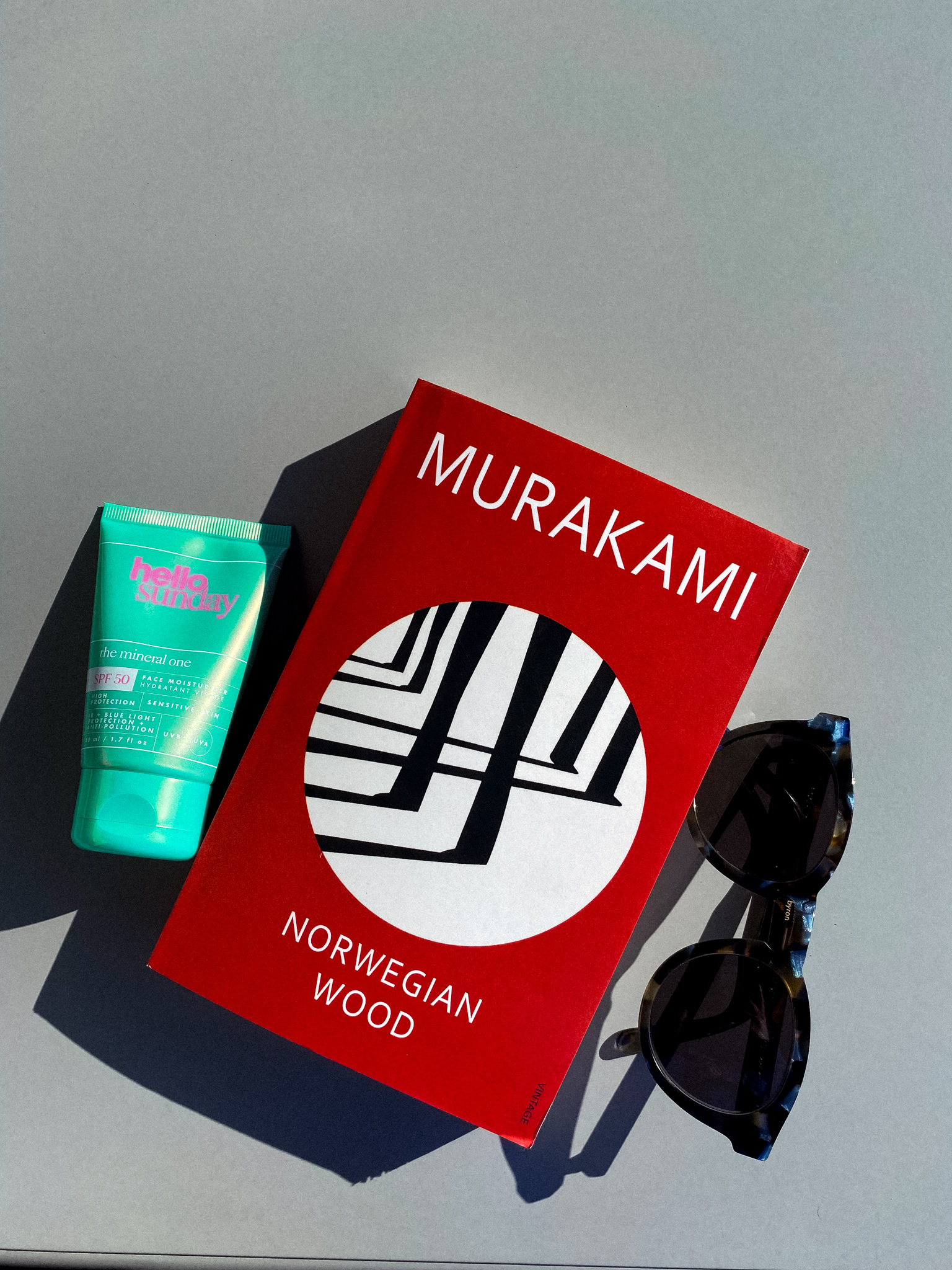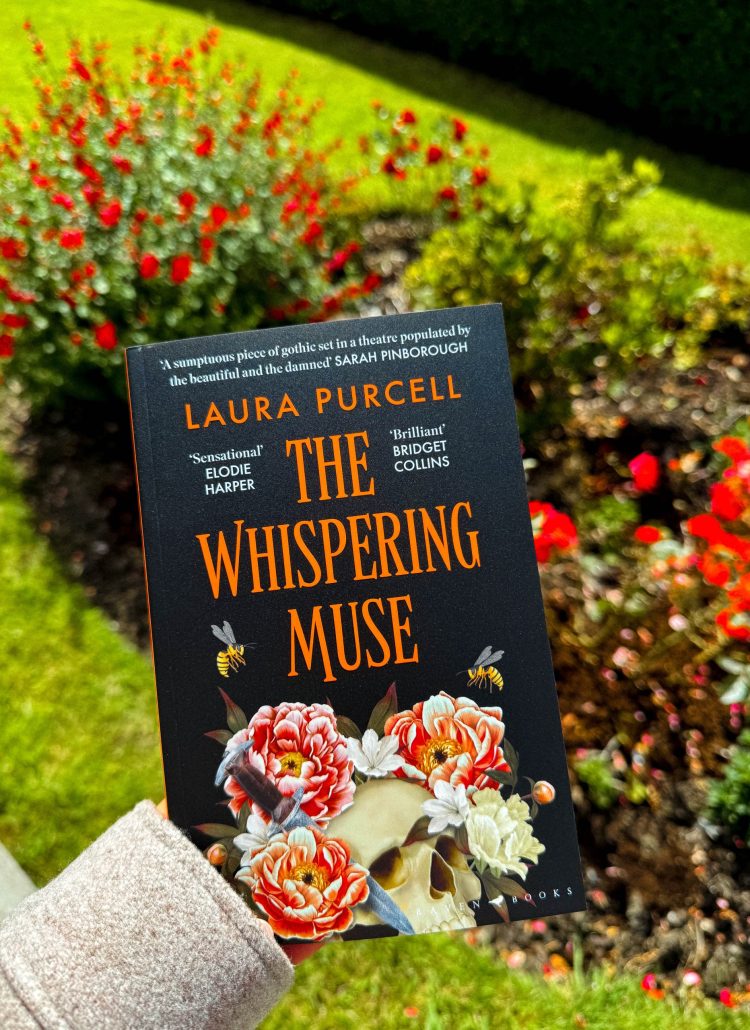Toru, a quiet and preternaturally serious young college student in Tokyo, is devoted to Naoko, a beautiful and introspective young woman, but their mutual passion is marked by the tragic death of their best friend years before.
Toru begins to adapt to campus life and the loneliness and isolation he faces there, but Naoko finds the pressures and responsibilities of life unbearable. As she retreats further into her own world, Toru finds himself reaching out to others and drawn to a fiercely independent and sexually liberated young woman.
“NO TRUTH CAN CURE THE SORROW WE FEEL FROM LOSING A LOVED ONE. NO TRUTH, NO SINCERITY, NO STRENGTH, NO KINDNESS CAN CURE THAT SORROW. ALL WE CAN DO IS SEE IT THROUGH TO THE END AND LEARN SOMETHING FROM IT, BUT WHAT WE LEARN WILL BE NO HELP IN FACING THE NEXT SORROW THAT COMES TO US WITHOUT WARNING.”
Murakami’s writing always has a strange sense of comfort – as if you’re catching up with an old friend. However, I am on the fence when it comes to Norwegian Wood. I can’t help thinking that perhaps I would have enjoyed it more if I’d read it in the autumn. I can’t explain it, but it feels like an autumn novel.
The book begins with Toru Watanabe, a 37-year-old man on his way to Hamburg. After hearing the song ‘Norwegian Wood’ by The Beatles, Toru is overcome with nostalgia and begins musing about his teenage years.
Kizuki, Toru’s best friend, took his own life at the age of seventeen, leaving Toru and Kizuki’s then-girlfriend, Naoko, broken. After Kizuki’s death, the pair begin to bond and as Toru tries to offer Naoko emotional support, they end up falling in love. As Naoko struggles with Kizuki’s death, she is admitted to a sanatorium following a breakdown.
The two stay in touch as Toru enrols at university and he visits her occasionally, with the hope that a recovery will lead to a blossoming relationship. During his visits, he also strikes up a friendship with another patient, Reiko. Meanwhile, as life gets tough to deal with, Toru isolates himself from the world. He ends up meeting the carefree and fiercely independent Midori and is drawn to her.
Starting with the good, I must say that I adored Naoko. Murakami writes her in a way that is so relatable and tough to read at times. My heart ached for her. The chapters that take place in the sanatorium are some of the most beautiful, magical and heartbreaking moments of the novel. Both vivid and intimate, Murakami’s narration invites you in and refuses to let you go.
That being said, there were a few times where I wished Murakami would let me go. Norwegian Wood is very much a coming of age story and sex is a major theme in the novel. While there’s nothing wrong that, the way Murakami chooses to portray the sexual encounters in Norwegian Wood leaves a lot to be desired and a lot to be improved. The line ‘rubbing together two imperfect lumps of flesh‘ is burned into my brain and still leaves me nauseous long after finishing the novel.
Individually, the female characters are fine. When written into scenes involving their relationship with Toru, they are reduced to caricatures who all want one thing. Toru’s d. It’s an absurd feautre of the novel, but once they’re alone with Toru, all the women in the novel seem to turn to jelly. They become needy, dysfunctional, emotional and ready to get down with Toru. He is selfish and unsentimental and also ready to get down with them. It’s just… icky.
Additionally, the somewhat extended passage devoted to Reiko’s lesbian encounter was odd and distasteful. One, why was she telling Toru this? And two, Reiko’s story is obviously sexual assault and, truth be told, added nothing to the overall plot other than to fetishize lesbian women and sexual assault. The level of perverse detail Murakami includes simply for Toru’s pleasure still makes me uncomfortable and I had to skip forward while reading. Don’t even get me started on Toru and Reiko’s hook up and the amount of sentences dedicated to her wrinkles.
There are some quietly beautiful and poignant moments in Norwegian Wood. Sadly, the characters that are the most interesting don’t get a lot of air time. I would have happily spent more time with Naoko in the sanatorium and really dive into her mental health. Similarly, I would have loved more about Mr. Womanizer, Nagasawa.
Sadness is a very complicated emotion and, for the most part, I enjoyed the way Murakami explored it in Norwegian Wood. It’s an intriguing and unique coming of age novel about life and death, isolation and mental health. Although he is the main character, I just couldn’t warm to Toru and the deeply unrealistic way that Murakami chose to present him. Like, you’re telling me this basic dude has sex with three of the main characters – as well as countless others left unnamed – and he’s apparently SO great at it that two of the characters conclude that they’ll never have sex again because nobody can ever measure up to him? 🙄
I like Murakami, I really do, but this isn’t his best. If you’re expecting a grand and special story, you’ll be disappointed. Poorly written smutty scenes and under-explored female characters aside, Norwegian Wood is an enjoyable dive into the human mind and the stories hidden in ordinary people.






Leave a Reply